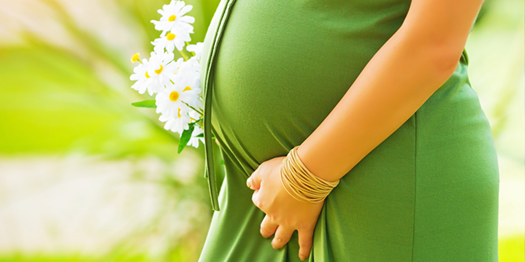- Calls to this hotline are currently being directed to Within Health or Eating Disorder Solutions
- Representatives are standing by 24/7 to help answer your questions
- All calls are confidential and HIPAA compliant
- There is no obligation or cost to call
- Eating Disorder Hope does not receive any commissions or fees dependent upon which provider you select
- Additional treatment providers are located on our directory or samhsa.gov
Postpartum Depression and Bulimia

Contributor: Crystal Karges, MS, RDN, IBCLC, Special Projects Coordinator at Eating Disorder Hope/Addiction Hope
For women with a past or present eating disorder, such as bulimia nervosa, pregnancy postpartum can trigger a relapse or worsen symptoms that may already exist.
With pregnancy, labor and delivery of a baby come many drastic changes and responsibilities that can quickly become overwhelming or difficult to cope with.
A woman’s body undergoes rapid changes in a short amount of time, and the physical demand of growing a baby, delivering it, and then caring for a newborn can be quite exhausting.
Depression Is a Stark Reality for Some Women
For some mother’s in the postpartum period of pregnancy, depression can be a stark reality. Particularly if a woman has had an eating disorder, her risk of developing postpartum depression dramatically increases.
Because eating disorders like bulimia and mood disorders share common characteristics, developing postpartum depression can become more likely within the 12 months after delivery. If you suspect that you or someone you care for may be struggling with postpartum depression, be aware of the following signs and symptoms:
- Lack of connection or bonding with baby
- Increased feelings of irritation or anger
- Feeling hopeless
- Experiencing feelings of sadness, emptiness, and/or numbness
- Changes in appetite and sleep habits
- Inability to concentrate and/or focus
- Suicidal thoughts or ideations
Seeking Out Professional Help

However, neglecting something like bulimia and postpartum depression can severely compromise your ability to care for your baby adequately. Post partum depression, if left untreated, can also exacerbate symptoms and behaviors of bulimia.
Treating Both Is Possible
If you find that you have relapsed into binging and purging episodes as a result of the experiences that you have been having as a new mom and postpartum depression, it is necessary to get the help you need. It is possible to professionally treat both postpartum depression and bulimia, and a specialized treatment team can help guide you through the recovery process.
By making self-care a priority and allowing yourself to get the help you need, you are making the single most important choice for your baby and your family.
Community Discussion – Share your thoughts here!
Have you struggled with postpartum depression and bulimia? What resources were helpful to your recovery journey?
Last Updated & Reviewed By: Jacquelyn Ekern, MS, LPC on June 25th, 2015
Published on EatingDisorderHope.com
